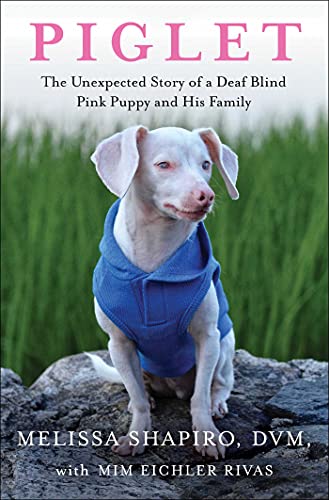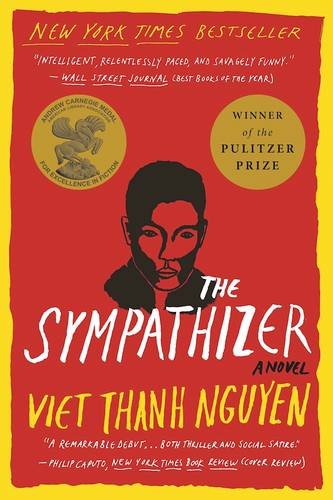-Titulo Original : Burning Questions Essays And Occasional Pieces, 2004 To 2021
-Fabricante :
Doubleday
-Descripcion Original:
In this brilliant selection of essays, the award-winning, best-selling author of The Handmaids Tale and The Testaments offers her funny, erudite, endlessly curious, and uncannily prescient take on everything from debt and tech to the climate crisis and freedom and the importance of how to define granola-and seeks answers to Burning Questions such as...* Why do people everywhere, in all cultures, tell stories?* How much of yourself can you give away without evaporating?* How can we live on our planet?* Is it true? And is it fair?* What do zombies have to do with authoritarianism?In more than fifty pieces, Atwood aims her prodigious intellect and impish humour at the world, and reports back to us on what she finds. This roller-coaster period brought the end of history, a financial crash, the rise of Trump, and a pandemic. From debt to tech, the climate crisis to freedom; from when to dispense advice to the young (answer: only when asked) to how to define granola, we have no better guide to the many and varied mysteries of our universe. About the Author Margaret Atwood is the author of more than fifty books of fiction, poetry and critical essays. Her novels include Cat’s Eye, The Robber Bride, Alias Grace, The Blind Assassin, and the MaddAddam trilogy. Her 1985 classic, The Handmaid’s Tale, was followed in 2019 by a sequel, The Testaments, which was a global number one bestseller and won the Booker Prize. In 2020 she published Dearly, her first collection of poetry for a decade. Atwood has won numerous awards including the Arthur C. Clarke Award for Imagination in Service to Society, the Franz Kafka Prize, the Peace Prize of the German Book Trade, the PEN USA Lifetime Achievement Award and the Dayton Literary Peace Prize. In 2019 she was made a member of the Order of the Companions of Honour for services to literature. She has also worked as a cartoonist, illustrator, librettist, playwright and puppeteer. She lives in Toronto, Canada. Excerpt. © Reprinted by permission. All rights reserved. Chapter 1Scientific Romancing(2004)I’m very honoured to have been asked to give the Kesterton Lecture here at Carleton’s School of Journalism and Communication.I note that I’m the fourth in this series, and that I’ve been preceded by three very eminent men. I have always distrusted the number 4, whereas I do have a preference for the number 3. So I’ve broken the dubious 4 down into two sets: one of three, a lucky moonstruck set, which includes persons of the male persuasion but excludes me; and a second set of one, which includes persons of the female sort and also, incidentally, me. I am therefore the first in a set that I trust will number many more individuals before long.That’s the feminism for this evening, which, as you can see, I have cunningly combined with the initial fooling around so you won’t feel too threatened by it. I’ve never known why people have sometimes felt threatened by me. After all, I’m quite short, and apart from Napoleon, what short person has ever been threatening? Second, I’m an icon, as you’ve doubtless been told, and once you’re an icon you’re practically dead, and all you have to do is stand very still in parks, turning to bronze while pigeons and others perch on your shoulders and defecate on your head. Third, I am-astrologically speaking-a Scorpio, one of the kindest and gentlest of astrological signs. We like to lead quiet lives in the dark and peaceful toes of shoes, where we never give any trouble unless someone attempts to cram an aggressively large yellow-toenailed foot in on top of us. And so it is with me: no bother at all unless stepped on, in which case I can’t answer for the consequences.The title of my small talk tonight is “Scientific Romancing.” Its cover story is that it’s about science fiction. Its subtext is probably What is fiction for? or something like that. The subtext under that will be a few paragraphs on the two scientific romances I myself ha
-Fabricante :
Doubleday
-Descripcion Original:
In this brilliant selection of essays, the award-winning, best-selling author of The Handmaids Tale and The Testaments offers her funny, erudite, endlessly curious, and uncannily prescient take on everything from debt and tech to the climate crisis and freedom and the importance of how to define granola-and seeks answers to Burning Questions such as...* Why do people everywhere, in all cultures, tell stories?* How much of yourself can you give away without evaporating?* How can we live on our planet?* Is it true? And is it fair?* What do zombies have to do with authoritarianism?In more than fifty pieces, Atwood aims her prodigious intellect and impish humour at the world, and reports back to us on what she finds. This roller-coaster period brought the end of history, a financial crash, the rise of Trump, and a pandemic. From debt to tech, the climate crisis to freedom; from when to dispense advice to the young (answer: only when asked) to how to define granola, we have no better guide to the many and varied mysteries of our universe. About the Author Margaret Atwood is the author of more than fifty books of fiction, poetry and critical essays. Her novels include Cat’s Eye, The Robber Bride, Alias Grace, The Blind Assassin, and the MaddAddam trilogy. Her 1985 classic, The Handmaid’s Tale, was followed in 2019 by a sequel, The Testaments, which was a global number one bestseller and won the Booker Prize. In 2020 she published Dearly, her first collection of poetry for a decade. Atwood has won numerous awards including the Arthur C. Clarke Award for Imagination in Service to Society, the Franz Kafka Prize, the Peace Prize of the German Book Trade, the PEN USA Lifetime Achievement Award and the Dayton Literary Peace Prize. In 2019 she was made a member of the Order of the Companions of Honour for services to literature. She has also worked as a cartoonist, illustrator, librettist, playwright and puppeteer. She lives in Toronto, Canada. Excerpt. © Reprinted by permission. All rights reserved. Chapter 1Scientific Romancing(2004)I’m very honoured to have been asked to give the Kesterton Lecture here at Carleton’s School of Journalism and Communication.I note that I’m the fourth in this series, and that I’ve been preceded by three very eminent men. I have always distrusted the number 4, whereas I do have a preference for the number 3. So I’ve broken the dubious 4 down into two sets: one of three, a lucky moonstruck set, which includes persons of the male persuasion but excludes me; and a second set of one, which includes persons of the female sort and also, incidentally, me. I am therefore the first in a set that I trust will number many more individuals before long.That’s the feminism for this evening, which, as you can see, I have cunningly combined with the initial fooling around so you won’t feel too threatened by it. I’ve never known why people have sometimes felt threatened by me. After all, I’m quite short, and apart from Napoleon, what short person has ever been threatening? Second, I’m an icon, as you’ve doubtless been told, and once you’re an icon you’re practically dead, and all you have to do is stand very still in parks, turning to bronze while pigeons and others perch on your shoulders and defecate on your head. Third, I am-astrologically speaking-a Scorpio, one of the kindest and gentlest of astrological signs. We like to lead quiet lives in the dark and peaceful toes of shoes, where we never give any trouble unless someone attempts to cram an aggressively large yellow-toenailed foot in on top of us. And so it is with me: no bother at all unless stepped on, in which case I can’t answer for the consequences.The title of my small talk tonight is “Scientific Romancing.” Its cover story is that it’s about science fiction. Its subtext is probably What is fiction for? or something like that. The subtext under that will be a few paragraphs on the two scientific romances I myself ha






















